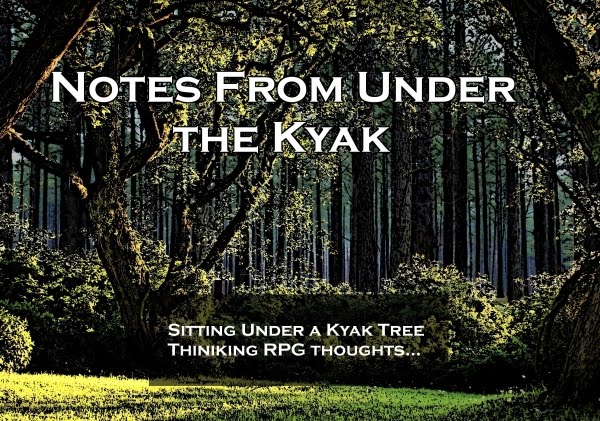ARGH - blogger lost the post....
So, here I go again. I've been gone a long time from this blog, but I haven't stopped thinking about and tinkering with RPGs - especially D&D. I just haven't had time to post. So I'm back - with, of all things - a post about thieves.
Back in the day the closest I ever got to running a thief character was an NPC elven Illusionist/Thief in my friend Jim's Ezra campaign. I generally ran fighters, clerics and paladins (yeah, yeah - so I'm a pastor now, so what did you expect?).
Anyway, I was reading Jim of LotFP's draft of his upcoming rule set and he's proposing that only fighters get better in combat as they progress in level. It was a bit of an epiphany for me - makes perfect sense - clerics and mages get more spells, thieves get better at their, uh, thief stuff, but fighters (yes, they get added attacks and some other stuff...but that's the point - they get better at fighting...). Now, I realize that combat in any edition (that I'm interested in playing, anyway) of D&D is purely an abstraction of attacks, feints, defensive maneuvers, etc - and, theoretically even the lowly mage can get better at dodging the sword or whatever - but I still like the idea.
And since I'm sort of putting together my own little houserule set (who isn't these days?) I'm considering the ramifications of the idea.
The thing is, the other classes have to be MORE useful than before if they're not going to get better in combat. Clerics, more miracles/prayers. Check. Mages - more, well, magic. Check.
So I thought I'd tinker a bit with thieves, to see if they could be more useful (in my opinion - bear in mind, I don't play the buggers, so it's all theory for me). I was watching TV the other day when I was sick and saw an ad for the TV show White Collar and thought, "That guy is a thief, but not a thug or a mobster. No he's a really specialized thief."
So I went poking around my rules sets and (re)discovered that 2nd ed had a system to do something like what I wanted. PCs start with certain %ages in each of their thief-y abilities and then can spread around 60 points to customize the character they want.
But the white collar guy can do forgeries...and disguise himself... So, 2nd ed was a start - but I wanted more skills (right now, thieves, rangers and druids are the only classes with "skills" and they are all VERY specialized - I do NOT want to go down that road with everybody - swimming skill, campfire making skill, nose-picking skill - bah...) and more customization.
So, here's what I've come up with (rough ideas - no detailed descriptions)
Thief Skills
F Pick Pockets 10
F Find Traps 10
F Remove Traps 10
F Sleight of Hand 10
F Open Locks 10
P Move Silently 10
P Climb Walls 10
P Hide In Shadow 10
P Disguise 10
P Climb Overhangs 10
M Detect Noise 10
M Read Languages 10
M Create Traps 10
M Forgery 10
M Counterfeit 10
All thief skills begin at 10 % (further modified by race and dex). All thieves at first level receive 90 discretionary percentage points that they can add to their base scores. No more than 30 points can be assigned to any single skill. Other than this restriction, the player can distribute the points however he wants.
Each time the thief rises a level in experience, the player receives another 50 points to distribute. No more than 15 points per level can be assigned to a single skill, and no skill can be raised above 95 percent, including all adjustments for dexterity and race. DM option, some portion of the points must be applied to skills used during the course of the adventures played to gain the level.
NOTE skills are separated into three categories: F- Fine Skills, P - Physical Skills and M - Mental Skills. After First Level, all 50 points gained per level must be applied to a single category of skills (representing the group of skills the thief was working on during the adventuring time)
(NOTE – reaches 95% in all skills at level 24 – wherein, new skills could, perhaps be added – or before – like apprenticing or appraising or something…)







.png)







































































































.png)












.jpg)



























































































































.JPG)






















No comments:
Post a Comment